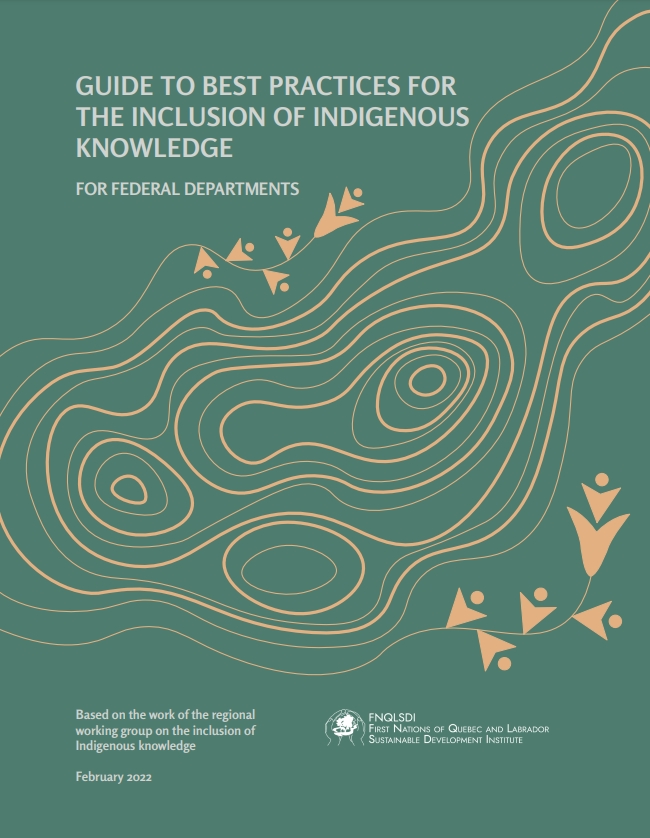Good practice guide to knowledge inclusion – for federal departments

A guide for federal departments on best practices for the inclusion of indigenous knowledge
This guide, produced and revised by First Nations experts in 2022, is intended for all federal government departments. This is an adaptation of the original 2020 version drafted with a working group and intended for Transport Canada.
The purpose of this Guide is to remind federal departments of the importance of the stages preceding the inclusion of knowledge, notably the establishment of a relationship of trust with First Nations, the development of the methodology and the collection of knowledge itself.
It proposes a process for gathering and including indigenous knowledge that meets the expectations and rights of First Nations. It aims to guide federal departments by identifying potential issues and recommending best practices at each stage of the indigenous knowledge gathering and inclusion process.
Here’s what you’ll find
Chapter I
Chapter II
Chapter III
Warning
This document has no legal status or political intent. It is a technical tool written for federal departments to guide the inclusion of indigenous knowledge in various government initiatives. Although this Guide has been submitted for review to several experts from First Nations communities in Quebec, it does not reflect the positions of the Assembly of First Nations Quebec-Labrador, nor those of all First Nations communities. The recommendations and principles set out in this document are intended to guide the approach and process of knowledge sharing between First Nations and federal departments.
The Guide should therefore not be seen as the only approach for government departments, who must seek to adapt their approach to the initiatives and First Nations concerned. The contents of this Guide have been prepared without prejudice to the existing Aboriginal rights and treaty rights of First Nations, and therefore cannot affect any positions, actions, negotiations or land claims whatsoever. It does not represent a formal consultation and accommodation procedure, nor does it exempt the government from its obligations to initiate such procedures.